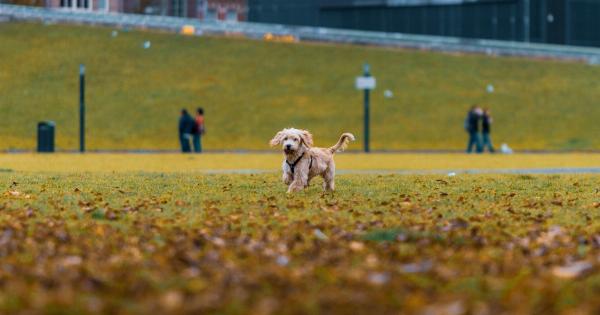As the seasons change and the temperature drops, it’s important to ensure that your furry friend is in good health. Just like humans, dogs can face unique challenges during the autumn season.
To keep your dog safe and healthy, here are some essential check-ups to consider:.
1. Veterinary Check-up:
Scheduling a visit to your veterinarian should be your first step in preparing your dog for the autumn season. A thorough check-up can help identify any underlying health issues and ensure that your dog is in optimal health.
The vet will examine your dog’s overall condition, including their weight, coat, and teeth. They will also update any necessary vaccinations to protect your furry friend from seasonal diseases.
2. Dental Examination:
Just like humans, dogs can also suffer from dental problems. The autumn season is an ideal time to schedule a dental check-up for your dog. Poor dental health can lead to various health issues like gum disease, tooth decay, and even heart problems.
A dental examination can prevent these problems and keep your dog’s teeth in good condition.
3. Parasite Prevention:
Autumn brings more than just falling leaves; it can also increase the risk of parasites like fleas, ticks, and worms. These pests can cause discomfort, itching, and even transmit diseases to your furry companion.
It’s essential to keep up with regular parasite prevention treatments and consult your veterinarian for suitable products to protect your dog during the autumn season.
4. Allergy Assessment:
Just like humans, dogs can also suffer from seasonal allergies. Autumn allergies often stem from environmental factors such as pollen, dust mites, and mold spores.
If you notice your dog scratching excessively, sneezing, or experiencing watery eyes during autumn, it’s crucial to consult your veterinarian for an allergy assessment. Identifying and managing allergies promptly can significantly improve your dog’s quality of life.
5. Joint and Mobility Evaluation:
The colder weather and fluctuating temperatures can make it difficult for dogs, especially those with existing joint issues. Arthritis and other joint problems can worsen during autumn, causing pain and decreased mobility.
Schedule a joint evaluation for your dog to ensure their joints are healthy and to manage any existing issues. Your veterinarian may recommend supplements, medications, or physical therapy to keep your dog comfortable.
6. Skin and Coat Examination:
The autumn season can be harsh on your dog’s skin and coat. Dry, flaky skin, excessive shedding, and dull coat are common issues during this time.
A thorough skin and coat examination can help identify any underlying problems and create a plan for maintaining a healthy coat. Your veterinarian can recommend appropriate grooming routines and products to keep your dog’s skin and coat in optimal condition.
7. Weight Management:
Autumn is typically associated with festive foods and treats, which can lead to weight gain in dogs. Obesity can have severe consequences for your pet’s health, including joint problems, diabetes, and heart disease.
Ensure you discuss your dog’s weight with your veterinarian and develop a suitable diet and exercise plan to maintain their ideal weight throughout the autumn season.
8. Anal Gland Expression:
Anal glands are small sacs located on either side of a dog’s anus, which can become blocked or infected. Autumn can exacerbate this issue, as dogs tend to spend more time indoors and have less frequent bowel movements.
It’s essential to have your veterinarian check your dog’s anal glands and express them if necessary to prevent discomfort and potential infections.
9. Eye and Ear Examination:
Autumn can bring increased moisture and humidity, which can lead to various eye and ear problems in dogs. Regular eye and ear examinations can help identify any infections, allergies, or foreign objects that may be causing discomfort.
Your veterinarian can provide appropriate treatments or recommend preventative measures to keep your dog’s eyes and ears healthy.
10. Behavior and Mental Health Evaluation:
Changes in the weather and routines can impact your dog’s behavior and mental well-being. If you notice any unusual behaviors, anxiety, or signs of depression, it’s essential to address these concerns with your veterinarian.
They can provide guidance, recommend behavioral training, or suggest appropriate measures to support your dog’s mental health during the autumn season.
Conclusion:
As autumn approaches, don’t forget to prioritize your dog’s health and well-being.
Regular veterinary check-ups, dental examinations, parasite prevention, and other autumn-specific check-ups can help ensure that your furry friend stays happy and healthy throughout the season. By taking these preventive measures, you can enjoy the beautiful autumn season with your dog by your side.






























